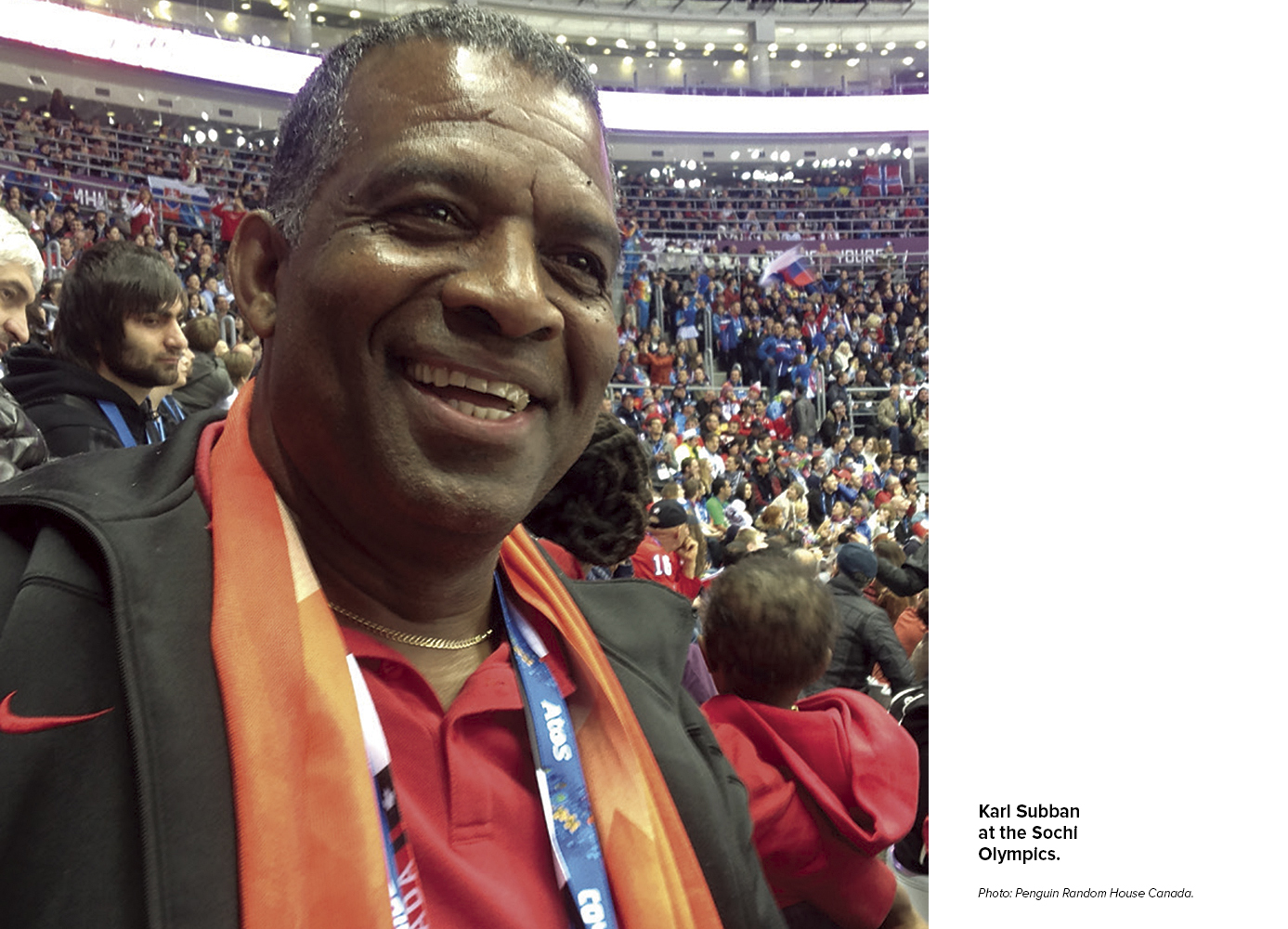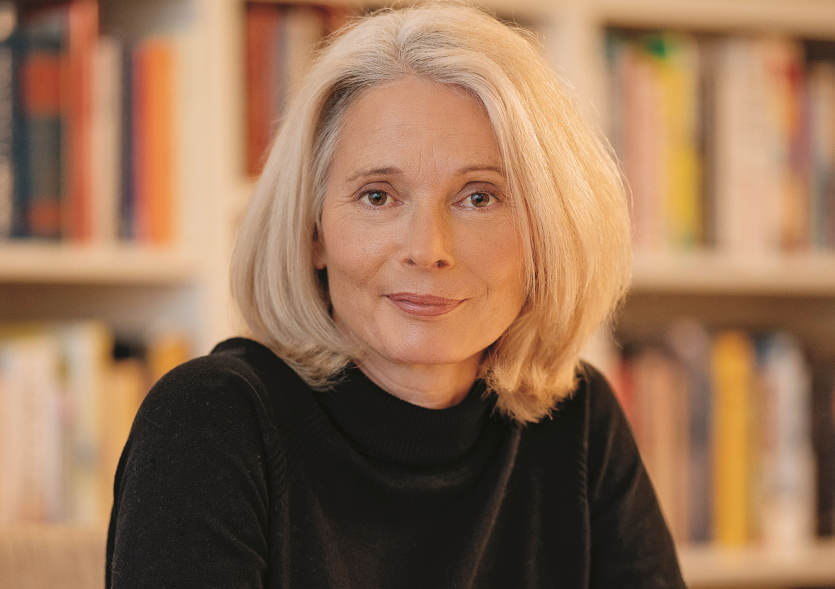“It’s the Journey”
Karl was born in 1958 in the small town of Portland Cottage (Clarendon Parish) on Jamaica’s southern coast, one of four brothers. The family name came from India with Subban’s great-grandfather. (And yes, despite the distant connection, P.K. Subban has ardent East Indian fans.) In Jamaica, Subban’s father worked in a large sugar factory 16 kilometres [10 miles] from home. He rode there each way by bicycle. “Our only luxuries,” Subban writes, “were a radio and running water.” But outdoor activities were boundless on the beautiful island. And, he adds, “Growing up, my brothers and I knew we were loved.”
Subban and his three brothers remained in their grandparents’ care in Jamaica until 1970. (Hopeton, the eldest, stayed, and still lives in Portland Cottage.) Subban entered school in Sudbury at 12, carrying many of the British-based Jamaican school traditions.
“My first teacher was Mr. Kangas,” he says, “and he would ask me a question and I would stand up. It was the British way, right? It didn’t take long for me to learn the new way.”
Fitting in brought few problems. “I was just one of the kids on Peter Street. They took me into their homes. Hockey was the thing. That was the language we all spoke.”
Sudbury’s large French-speaking population favoured the Montreal Canadiens. Young Karl idolized Habs goalie Ken Dryden and, arriving as a non-skater, was often “stuck in goal” for pick-up games. Race was barely mentioned, Subban smiles, “except hearing people say that black people couldn’t play hockey because we have weak ankles.” Struggling as a student at first, he discovered another game: basketball. Subban became a player and a passionate fan, devouring Basketball Digest, the bible of the big-league National Basketball Association. Reading voraciously improved his language skills. Making the NBA became his dream. In 1979, with funds earned working at the local A&P supermarket, he crossed Ontario to Thunder Bay, recruited by Lakehead University to play the game he loved.
His sunny nature and basketball adventures in Thunder Bay earned him friends that have lasted a lifetime. He was a star at Lakehead—team “Most Valuable Player” twice, conference all-star four times. But the pathway to his dream was making the Canadian National Junior Basketball team. He fell short.
When one dream died, Subban found another in his love of working with children. His new path: to become an educator. With Maria Brand, whose family had immigrated from the Caribbean island of Montserrat, he became a father of five.
“I didn’t make the NBA,” he reflects, “but it’s the journey; it’s the journey. Developing those life skills, the work ethic. Learning that you’ll face disappointments. That’s all part of it. Chasing that dream, I got so much better. I learned some tremendous life skills. Nothing was ever given to me. I believed in my potential. I knew I could get better. I want every child to know he or she can get better.”
A Village of Friends
Athletics have brought a lot to the Subban family. Hockey may be Canada’s game, but rising costs are a barrier to many. What made a difference to the Subbans was a village of friends. When I ask Subban about his favourite moments from hockey, the memories that come to him are not of goals or wins, but of kindness:
“You know, when P.K. was younger—and later Malcolm and Jordan—I would take them to the outdoor rink at Summerlea. P.K. was five, on the ice, playing shinny with these boys who were older. And they looked out for him. And when Malcolm needed goalie equipment, my friend Ted Nishi said, ‘Karl, what does Malcolm need?’ When P.K. was about to play hockey for the first time, my friend Dave Vince came back with a hockey bag. Barb Smales came with a bag of stuff. And George Burnett in Belleville, who drafted all my boys, he and the people there took care of them and helped them grow.
“And I say to my wife now, ‘We’ve been helped to a great degree.’ And if we stop helping and everybody does the same, who will help all of our children? They will need someone to help them along the way.”
In 2014, then-25-year-old P.K. Subban, who had become a superstar, signed his big contract—an eight-year, $72 million deal with the Montreal Canadiens. (Later, a controversial trade sent him to Nashville.) With the contract came P.K.’s decision to help the Montreal Children’s Hospital.
“P.K. has more money than I’ll ever have,” his father says. “He could be doing so many other things with his money and fame, so many things that we don’t want our kids to do. But he’s setting a good example for his brothers, for his sisters, and for us all to follow. When he chose the hospital…it brings tears to my eyes.”
As we talk, Subban remembers another emotional moment in his life. It came in Sudbury in the mid-’70s: “the day I became a Canadian citizen.
“It was on the second floor of the post office. I just remember singing ‘O Canada’ and my eyes watered. And here we are now. That feeling never left me. When Canada Day comes, I’m so proud to be a Canadian. And you know what? We’ve worked to make this place better. And I feel really good about that. We’ve contributed.”
END





